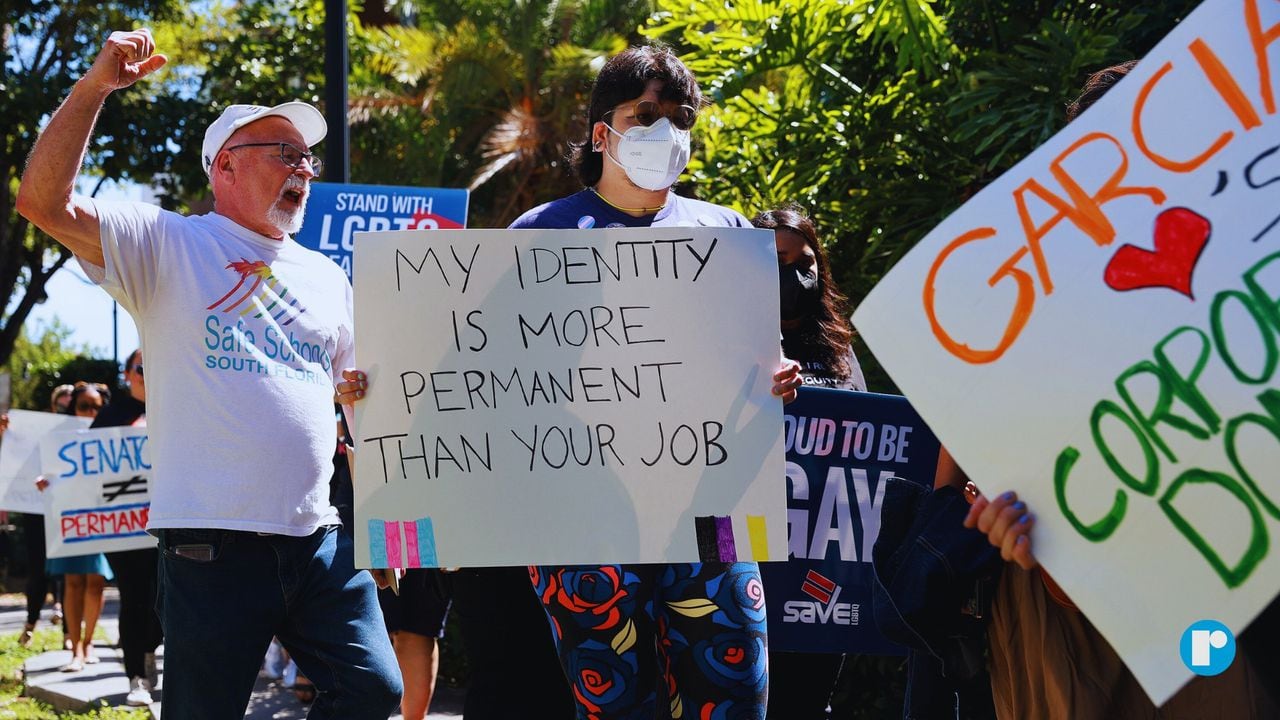New Florida bill proposes sweeping restrictions on gender identity and pronouns in workplaces
Rep. Ryan Chamberlin, a Republican from Ocala, has introduced a sweeping bill today that aims to regulate pronoun use and LGBTQ+ training in workplaces across Florida. The proposed legislation, labeled HB 599, encompasses government employees, contractors, and nonprofit organizations, setting forth stringent regulations and bans concerning pronoun usage, gender identity, and sexuality.
“HB 599 is an extreme escalation of right-wing extremism in Florida. The bill imposes unprecedented government control over the work of nonprofit organizations disfavored by the DeSantis administration and goes far beyond its proposed regulation of pronouns to aggressively target the rights of transgender government employees to simply exist as themselves,” said Carlos Guillermo Smith, senior policy advisor at Equality Florida. “This latest attack is a continuation of DeSantis’s censorship agenda which attempts to erode our basic democratic freedoms in order to appeal to a far-right base.”
The bill’s first section targets government workers and contractors, broadly defining contractors as any entity seeking or engaged in a service contract with Florida’s state, county, municipality, or special district. If passed, the bill would assert that a person’s sex is an unchangeable biological trait, prohibiting employees from using pronouns that do not align with an individual’s birth-assigned sex. Effectively, this measure would restrict social transitioning in the workplace for covered employees.
Moreover, HB 599 introduces protections for employees holding “deeply held religious or biology-based beliefs.” While the term “deeply held religious beliefs” has a legal precedent safeguarding freedom of religion, the addition of “biology-based” beliefs in legislation is unprecedented. This provision appears to extend religious-based protections to individuals justifying misgendering and the use of old names for transgender individuals as part of their “biology-based” rights.
However, the bill’s impact isn’t confined to government employees and contractors. Another section extends its reach to nonprofit organizations and employers receiving state funding. In its broadest interpretation, this segment prohibits these entities from mandating any form of instruction, training, or activity related to sexual orientation, gender identity, or gender expression. This provision, if enforced, could severely affect LGBTQ+ nonprofits in the state, potentially leading to their closure and driving LGBTQ+ activism underground, akin to laws in other countries targeting LGBTQ+ organizations.
On Tuesday, Representative Anna Eskamani, representing Orlando as a Democrat, swiftly criticized the proposal, deeming it “highly unconstitutional.” She voiced concerns that its implications would extend to non-profit organizations like the LGBTQ advocacy group Equality Florida.
“Florida Republicans just filed legislation that would essentially ban gender pronouns in PRIVATE businesses and prohibit trainings about pronouns in nonprofits too,” Eskamani wrote on X. “Would basically ban @equalityfl from existing.”
The implications extend beyond LGBTQ+ organizations. The bill encompasses tax-exempt organizations, potentially affecting political groups, medical organizations providing LGBTQ+ care, and community health clinics mandated to educate on LGBTQ+ issues.
This legislation signifies an initial step in what could be a challenging year for anti-LGBTQ+ legislation in 2024. Florida has a history of incubating such laws, and this bill could serve as a template for similar measures in other states.
Previously, in the 2023 Legislative Session, Florida passed HB 1069, which bars schools from compelling employees or students to use pronouns that don’t correspond with an individual’s sex as a condition for employment, enrollment, or program participation.
The introduction of HB 599 has sparked debates on the balance between workplace regulations and individual rights, promising heated discussions in the upcoming legislative sessions.
For Erin Reed, this bill equates to the trans version of Don’t Ask, Don’t Tell in the workplace. “It takes all of the worst aspects of the now infamous Don’t Say Gay law, which resulted in the firing of teachers, and now applies them to nonprofits and government workers and contractors,” said the trans independent journalist and LGBTQ legislation tracker.
“It should be abundantly clear to everyone now that these laws are designed to drive LGBTQ people, and especially transgender people, out of the state,” Reed said. “When Republicans talk about a plan for trans “eradication” in the CPAC conference like Michael Knowles did, policies like these are an attempt to put that eradication into action.”
The road ahead for HB599 is uncertain, but its introduction has reignited conversations about the boundaries of freedom, expression, and protection for marginalized communities in the workplace. As Florida navigates this contentious legislative landscape, the eyes of the nation are poised on how this bill will shape the future of LGBTQ+ rights in workplaces and potentially beyond.
